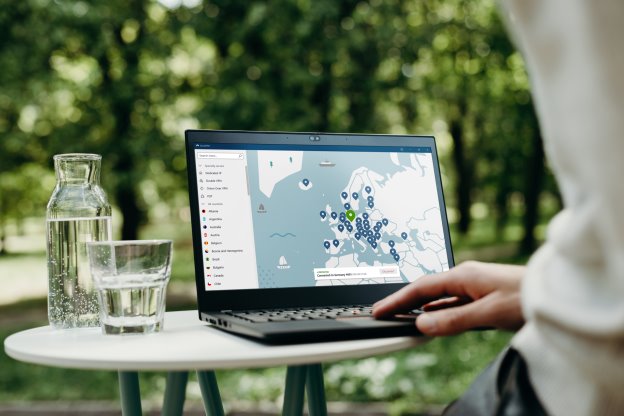Another year — another lockdown: digital privacy expert’s advice on how to work from home safely and productively

As COVID-19 cases continue to rise, many countries around the world have imposed another round of lockdowns, forcing people to continue working from home. Despite new safety and security habits adopted, a 350% increase in phishing websites was reported in the first quarter of 2020. With people spending more time online, the risk is only expected to rise.
“The current crisis has tremendously accelerated the shift towards a more digital world. With people living, working, relaxing and shopping online, the changes are here to stay, and no one is immune to vicious cyber attacks,” says Daniel Markuson, digital privacy expert at NordVPN, one of the leading world’s cybersecurity solutions.
With lessons learned from the first lockdown, Daniel Markuson shares his advice for safe and productive work from home during the current one:
1. Keep your work and rest places comfortable
Since working-from-home has become the new normal, a comfortable workspace is a worthy investment. Look for a chair that supports your neck and spine or a few drawers to store your stationery. Moreover, keep your table tidy to avoid distractions and pay attention to natural light and desk lamps — proper lighting has a positive impact on your physical and mental health.
A well-equipped workplace won’t make you productive on its own — make sure to get a daily dose of fresh air and ventilate your space. No-screen time must be on your agenda as well. A survey by NordVPN shows that on average Americans spent 95% and Germans 81% of their waking hours on various devices during the pandemic.
“If possible, it is important to create a distinction between ‘work’ and relaxation spaces within your home. Otherwise, the work-life boundaries get blurred, leading to technology overuse. Working from home will continue to challenge your productivity, but proper setup is crucial to overcome this,” adds up Daniel Markuson.
2. Be vigilant downloading new apps and services for work and leisure
Buy them only from legitimate sources. Even when you’re downloading an app from the official store, double-check what you are getting. Does it have good reviews? Moreover, do not forget to review permissions for mobile apps — some of them collect unnecessary data and may share it with third parties.
“Many online services have seen a spike in usage during the lockdown. As people spent more time indoors, they looked for more digital entertainment, shopped online, ordered through various apps, and used other online resources. It comes as no surprise that this year is to be remembered as a digital year,” says Daniel Markuson, the digital privacy expert at NordVPN.
With the rise of new apps and digital services, people have created more online accounts during the pandemic. The average user has around 100 passwords, according to research conducted by the password manager NordPass. It’s 25% more passwords compared to February 2020, just before the COVID-19 hit the world. Another survey conducted in March revealed that most people downloaded new apps required by their employer, productivity apps (planners, calendars, password managers, etc.), and apps for leisure (exercise, gaming, learning, cooking, etc.).
3. Keep up with your routine
Since the beginning of the pandemic, many people have lost their jobs. Others are required to keep an “all-hands-on-deck” pace with fewer resources and more work as a result of shrunken teams. This inevitably led to longer working hours and sacrificed healthy habits.
Data from NordVPN Teams indicates that employees spend an extra 2.5 hours working during the COVID-19 pandemic. This jump in working hours directly correlated to mandated remote work during the COVID-19 pandemic. Additionally, Workplace Insights states that 29% of people feel under pressure to work overtime due to a lack of job security. 52% of survey respondents are doing so without extra pay.
Besides longer working hours, employees are also reporting loneliness and increased difficulties in communicating among teams. Meanwhile, many IT professionals believe that remote workers are the biggest security risk.
“In order to keep up with your routine and sustain a work-life balance, set and keep boundaries. Stick to your priorities, don’t be afraid to say no, and don’t skip or shorten your lunch break. Also, don’t let your working hours overrun and set a limit on the number of times you check work email after hours,” advice Daniel Markuson.
4. Stay cyber-aware not to cause a hack for your employer
The number of cyber attacks has increased during the pandemic, and so did outbound email data breaches. According to the Egress report, on average such breaches happen every 12 working hours, with employees often the weakest link in the cybersecurity chain.
Additionally, a survey by password manager NordPass revealed that 62% of employees were using personal computers for remote work in 2020, which made them vulnerable to cybercrime. “Personal laptops might lack the necessary security software, such as an antivirus, a business VPN, and others. On top of that, people tend to be more relaxed when using personal computers — they may download games, browse unsecure websites, and click suspicious links,” says Daniel Markuson.
Despite this, based on the CyberSecurity Insights Report, almost a third (28%) of UK employees said that their company has never given any cyber security training. More than half (52%) of respondents said that cybersecurity was not a priority for their businesses.
Moreover, analysis by file encryption tool NordLocker shows that people encrypted 19.5 times more data. Due to work from home, the need to encrypt private files, like photos and work-related data, increased. Instead of 0.6GB in March 2020, the volumes of encrypted data per user surged to 11.7GB in November 2020.
“As remote working culture continues to thrive, people must not forget about these three security steps:
Always hover the mouse over the sender’s email address to verify its authenticity.
Only open attachments from senders you trust.
If you have any doubts about a received email, do not hesitate to discuss the case with your manager before responding,” recommends Daniel Markuson.
Another wave of lockdowns around the world shows that the disruption of 2020 is not over. With lessons learned from the start of the pandemic, people should maintain their digital hygiene and mental wellbeing.




